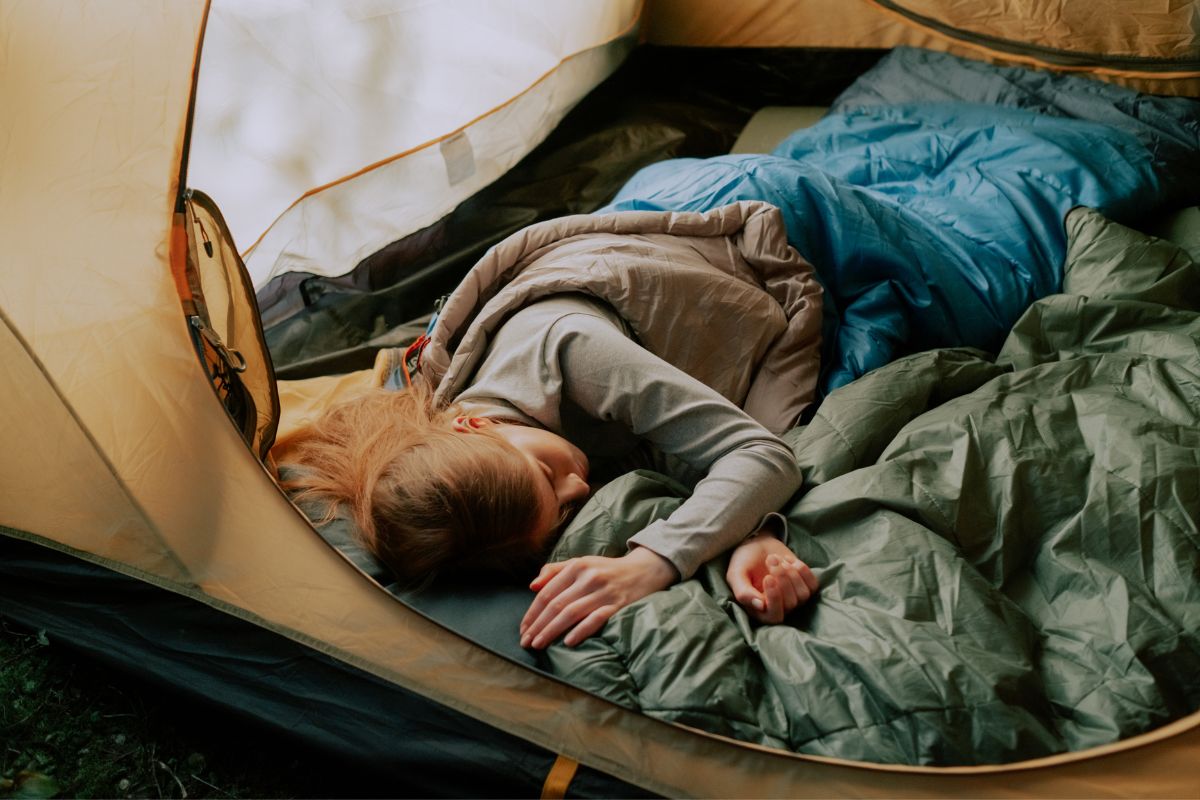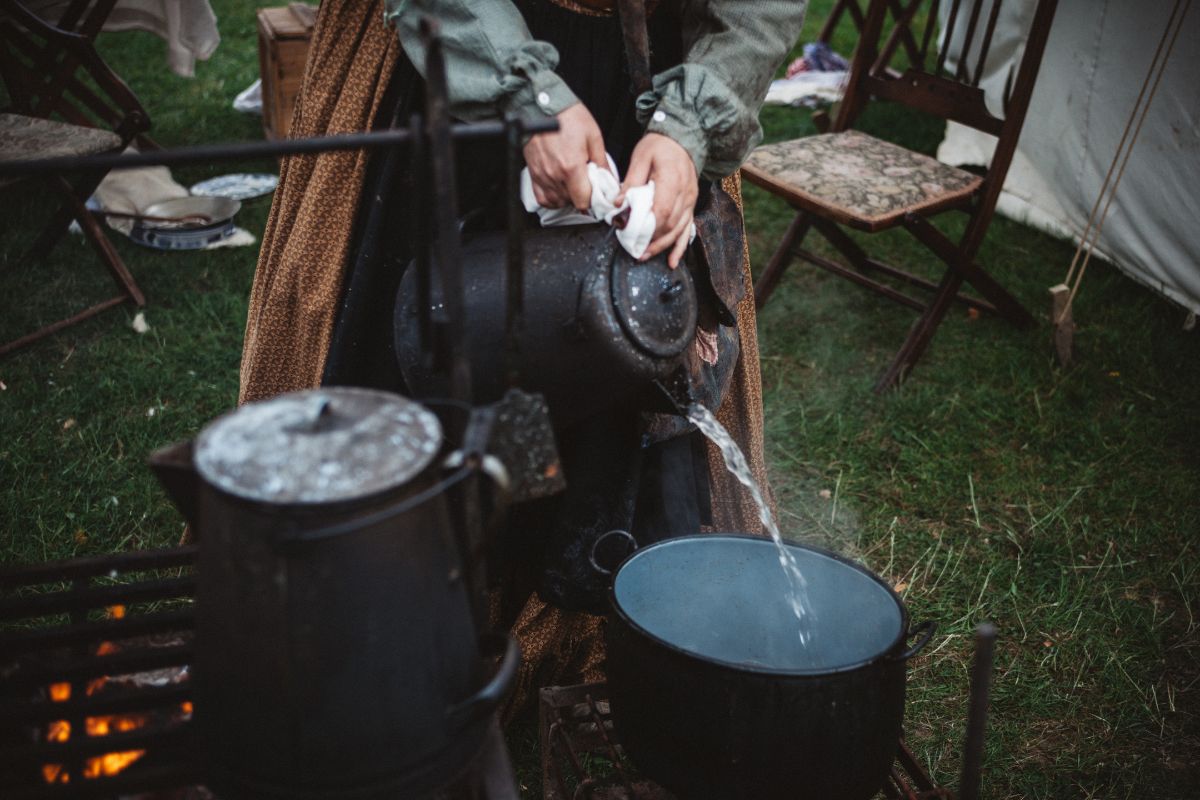Discover How To Use The Power of Authority Marketing To Make You Money While You Adventure!
No Experience, Existing Product Or Technical Skills Are Required
DO YOU BELIEVE ADVENTURES ARE WORTH CHASING?
We're an affiliate.
We hope you love the products/services we recommend on Just Van Life! So you know, there is the possibility we will collect a commission should you make a purchase via any of our links. This will in no way affect the purchase price. Thank you for your support, we really appreciate it!
A tent heater can seem like an essential item, but behind a flashlight, a tent and sleeping bags are the most essential items campers decide to purchase. This can be due to warmer seasons or a reluctance to use tent heaters over safety concerns.
However, heaters, like any piece of equipment that uses propane has the potential to cause harm if not handled properly.
Another thing to consider is what type of heater you should get. A personal heater for the home may not be designed for the closed space of a tent.
There have also been concerns about carbon monoxide poisoning and fires that have made some hesitant to use them.
This article highlights the best ways to use different types of tent heaters and suggests other ways of keeping you warm when those evenings get especially chilly.
Keeping Yourself Warm

As well as keeping the tent warm, your own heat is important when considering what method you’re going to use.
If you get into your sleeping bag and you’re cold it’s going to make the night very uncomfortable, increasing your risk of hypothermia if your body temperature drops below 95°F.
It is important then to wear a few layers of clothing and warm the body up before you get into bed. After a while, It can be tempting to take a layer or two off but doing this will make you cold during the night.
You’ll also want to invest in a lined sleeping bag and a thicker, more insulated sleeping pad if you intend to camp in the winter months as you want to keep more of that heat in the tent, which isn’t an easy task on its own.
What Heater Should I Use?
There are many heaters you can take advantage of if you know which ones to get and what features you should look out for when deciding which one is right for you.
Propane Heaters
As bad as what is said about them, they can also be used to make coffee and soup. When looking at these types of heaters you are looking for Dual safety controls, a Low-oxygen sensor, and a Safety tilt automatic shutoff valve.
You also need to get a carbon monoxide detector that can act as another safety feature that shuts itself down if the level of carbon dioxide reaches a set point.
It’s also worth noting here that keeping your tent well ventilated and having it face away from a breeze will ensure a device like this works effectively as supervision will also be needed, especially if there are young children in the same area.
Battery-Powered Or Electric Heater
A safer alternative if you don’t have as much room or ventilation in your tent. This is the better option if you’re at a campsite and they offer an electric hookup.
The only issue here is that if your tent doesn’t have any waterproofing the results could be quite shocking.
Here you want to ensure that the heater is covered by the rain and is left a few feet away from any fabric walls and stands upright.
If you are in any doubt about the suitability of your heater you can check the manufacturer’s guide which will outline its suitability for your needs.
If you are in any doubt, however, it may be best to leave any of these heaters at home.
Is There A Safe Way To Heat A Tent?

There isn’t a way that is 100% safe but there are some alternatives you can use to make those nights not as uncomfortable as you’d assume.
One of these methods is to heat water in large plastic or metal bottles. You can spread a few of these in your tent and they should slowly retain and release heat around the tent.
These bottles would have to be quite large and a type of propane heater or fire would need building. This method is probably more useful to those who are staying in one area on their camping trip.
A safer way than using a propane heater are oil-filled portable heaters. If you have access to a hookup to electricity then running an extension cord could be a viable option.
The oil heater will have to match the size of your tent so you may end up needing more than one. You’ll also have to keep them on for longer as they give out a lot of heat but disperse quicker, making you cold sooner.
The best tip is to set the oil heater on low instead of putting it on full blast.
What If I Don’t Want To Use Any Power?
If you want to take a more Do-it-yourself approach, you can dig a trench where you want to place a tent, then build a fire in it.
Make sure the fire is put out completely and the area is clear before you place your tent.
You want to make sure the area isn’t too hot or you could have another fire on your hands. This is ideal for small tents with people that are on the move.
Before you attempt to start a fire you need to know if the national park or campsite allows open fires and if so you want to prevent starting any wildfires by knowing how to build and maintain one as fires can be unpredictable.
Final Thoughts
There are many methods here that have their own pros and cons but it all depends on which one you are more comfortable using.
It may be wise to test out these different methods at home so you know how to identify a problem and know how to shut it off quickly.
You will also have to identify how much you are able to carry by yourself or between your group- If you have to carry a few portable heaters because you have a fairly large tent, these will take up valuable space for other necessities.
Discover How To Use The Power of Authority Marketing To Make You Money While You Adventure!
No Experience, Existing Product Or Technical Skills Are Required
DO YOU BELIEVE ADVENTURES ARE WORTH CHASING?
